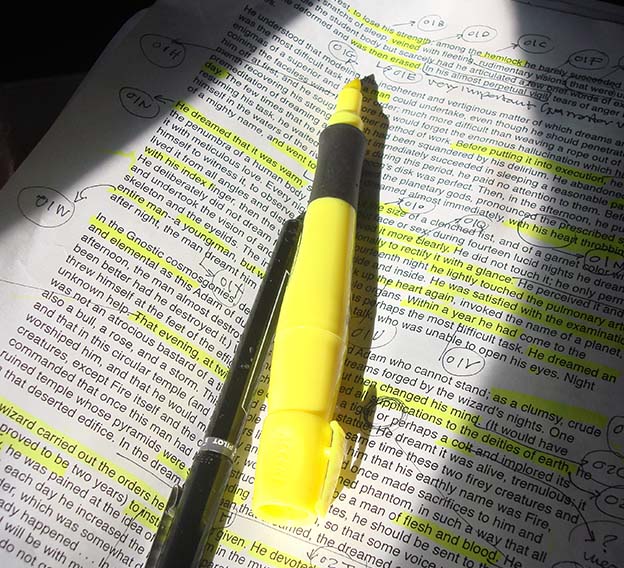Better teaching and learning is all in your head

Despite what many think, highlighting and re-reading pages of notes isn't always the best way to retain information, says Joe Kim. This week's Symposium on Cognition, Learning and Education will shed light on this and other areas of learning.
When it comes to studying, students spend a lot of time highlighting textbooks.
“They end up turning white pages into completely yellow pages,” says Joe Kim, associate professor of psychology, neuroscience and behaviour. “They highlight and they re-read, and they do this for hours. When they’re done, they really feel like they’ve put a lot work into studying.”
The problem is, this isn’t always the best way to understand complex concepts.
“People aren’t always good at judging what’s good for them in a learning situation,” he says. “It’s not necessarily intuitive what’s good for you, which is why it’s so important to do more research in this area.”
It’s also why Kim is so excited about this week’s Symposium on Cognition, Learning and Education.
The event will bring together experts in human learning, memory and education, including John Dunlosky, who will kick off the symposium Wednesday night with a public lecture on improving student success using cognitive science.
“Cognitive scientists have been studying memory, attention and learning for about 150 years, and we’ve learned a lot,” says Kim. “What’s exciting is that there are now people who want to apply what we’ve learned to education.”
Kim compares the movement to what happened in the field of medicine.
“Medicine wasn’t always evidence-based, but you can see why making the case for evidence-based medicine was a good thing,” he says. “It’s the same for teaching and learning. There are lots of principles that have emerged from the lab that can make a real difference in how courses are developed and taught.”
The symposium will also include tours of McMaster’s new LIVE Lab, a state-of-the-art performance theatre in the Psychology Building. The facility allows researchers to measure neurological and cognitive responses from both performers and audiences.
“It’s also the world’s most advanced pedagogy lab,” says Kim. “You can measure brain activity, skin response, analyze motion – everything you would want to look at. It’s really a one-of-a-kind lab.”
The free symposium begins Thursday at 8 a.m. Dunlosky’s talk is scheduled for Wednesday at 6 p.m. in CIBC Hall. Those interested can register online.
